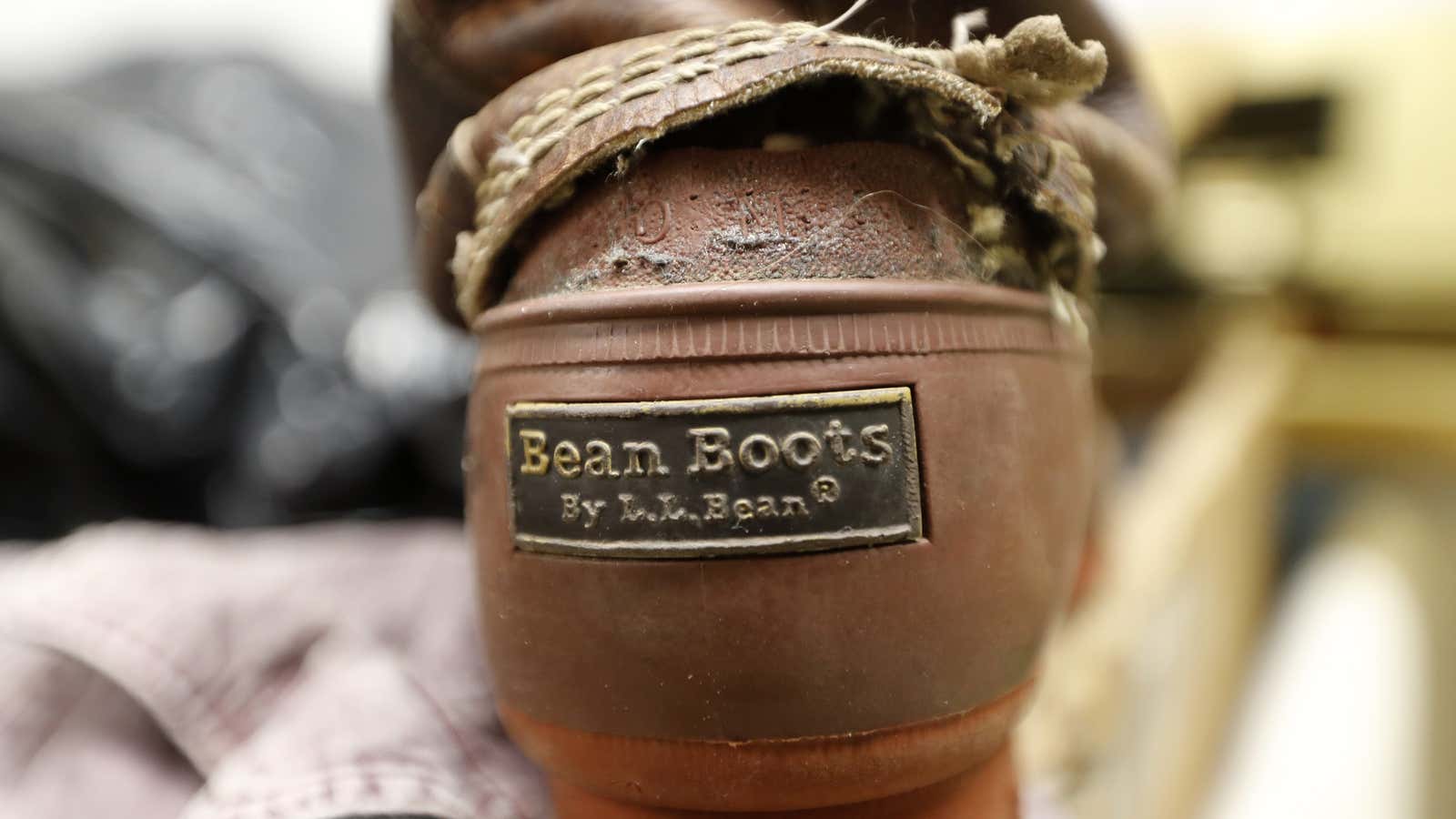L.L.Bean is officially bringing its well-known lifetime return policy to an end. The reason, according to the venerable American purveyor of outdoor gear: too many fraudulent returns.
In a letter sent to customers and posted to the brand’s Facebook page, L.L.Bean explained that people were abusing its famously generous policy. “Increasingly, a small, but growing number of customers has been interpreting our guarantee well beyond its original intent,” the letter states. “Some view it as a lifetime product replacement program, expecting refunds for heavily worn products used over many years. Others seek refunds for products that have been purchased through third parties, such as at yard sales.”
“The financial impact is remarkable—in the last five years, the rate has doubled on such returns and in that five years, has cost us approximately $250 million,” a spokesperson for the company says. “It’s not fair to the customers who honor the original spirit of the guarantee and it’s certainly not sustainable from a business perspective. We anticipate only a small number of our customers will be impacted by this change as approximately 15% of recent product returns abused our guarantee, which is double what it was just a few years ago.”
L.L.Bean told the AP that these returns, which it says have nothing to do with product quality or satisfaction, have overtaken the revenue it makes from its perennially in-demand duck boots.
Now, customers who wish to return an item for a refund have one year to do so, according to the company’s updated policy. After a year, L.L.Bean will still take returns for items that are defective because of the materials or craftsmanship. But any refund or exchange also now requires a proof of purchase. L.L.Bean should have information on file for customers who bought from it directly and provided their information at the time. For those who bought from other retailers, L.L.Bean requires a physical receipt.
It’s a momentous change considering that the previous policy had persisted for more than a century and was an integral part of the L.L.Bean brand. It let generations of customers know that if they became unsatisfied with a purchase for any reason, at any point, L.L.Bean was willing to accept the item back. News of the new approach caused some dismay among its customers on social media:
Others were supportive of the change:
The Maine-based brand had been mulling the measure as a way to cut costs for at least a year. Like other American retailers, it has struggled with years of slow or nonexistent sales growth. In February of 2017, it started freezing worker pensions and offering incentives for workers to take early retirement, which it expected to slim its workforce by about 500 people. It also warned at the time that it might have to rethink its return policy.
This story has been updated with comments from an L.L.Bean spokesperson.
